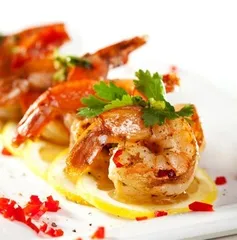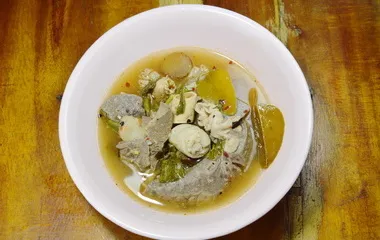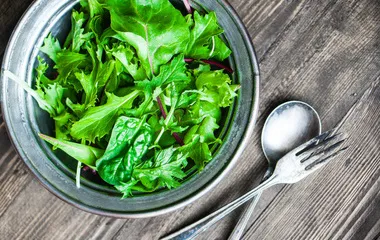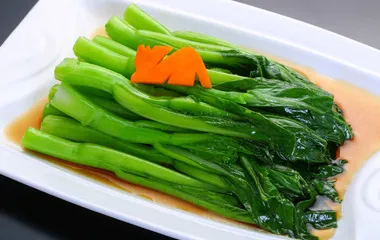Clearing heat and reducing fat, summer slimming dish cold bitter gourd
Recommendation for this issue: Colored bitter gourd How to use cold bitter gourd>>

bitter gourd 300g; about 57 calories
Excipients:

1 red pepper; about 30 calories

is slightly shallower
Seasonings:

white sugar

Salt
Total calories: 50 calories/person-more calories check check the calories your body needs
Cold balsam pear-The principle of weight loss Experiments have shown that after obese rats eat balsam pear, the fat oxidation rate increases, and the mitochondrial decoupling effect increases, that is, fuel molecules such as sugar and fat are decomposed and transformed into heat and emitted, thereby reducing the amount of fat tissue.
Balsam pear tastes bitter and cold in nature and has the function of clearing heat and purging fire. Not only does the vitamin C content rank first among melons, but it is also rich in carotene, riboflavin and minerals calcium, iron and phosphorus. The Compendium of Materia Medica states that bitter gourd can "eliminate annoyance and heat, relieve fatigue, relieve mental health and improve eyesight." Modern research has shown that the saponins contained in bitter gourd can stimulate insulin release and reduce blood sugar in patients with type 2 diabetes.
Eating more bitter gourd in summer has many benefits. However, balsam pear is cold in nature, so people with yang deficiency and fear of cold should not eat more.
Cold bitter gourd-making steps

1 Preparing materials
Prepare 300g bitter gourd, 1 red pepper, a little scallion white; appropriate amount of salt, garlic, soy sauce, white sugar, sesame oil, etc.

2 slices of bitter gourd
Wash the bitter gourd and slice it into four petals. Use a blade to remove the flesh and white part, and cut it into thin threads with an oblique knife.

3 Cut and soak
Shred pepper, scallion white, soak in water to curl.

4 With seasonings
Mix minced garlic, soy sauce, sugar, vinegar, and sesame oil well to make bowl juice.

5 blanched bitter gourd
Add water to the pan, add a small teaspoon of salt after the water boils. After the water is boiled, add balsam pear and blanch it for 1 minute. After serving out, quickly rinse with water to control the moisture.

6-yard disk
Put the shredded bitter gourd into a plate, and top with the shredded red pepper and shredded green onion.

7 Pour seasoning
Pour the seasoning juice on the bitter gourd and serve.
Share it on my Weibo
nutrition consultant
网站图片位

Nutrition consultant Sylvia Wang Wang Wei, Master of Food and Human Nutrition, University of Florida, USA Long-term consumption of bitter gourd may have a positive effect on preventing diabetes.
The decoupling effect of bitter gourd effectively reduces fat
Sylvia Wang: Experiments have shown that after obese rats eat bitter gourd, the fat oxidation rate increases and the decoupling effect of mitochondria increases, resulting in a decrease in fat tissue. The decoupling effect in bitter gourd is mild and has a positive effect on reducing fat and preventing diabetes.>> See more ways to lose weight